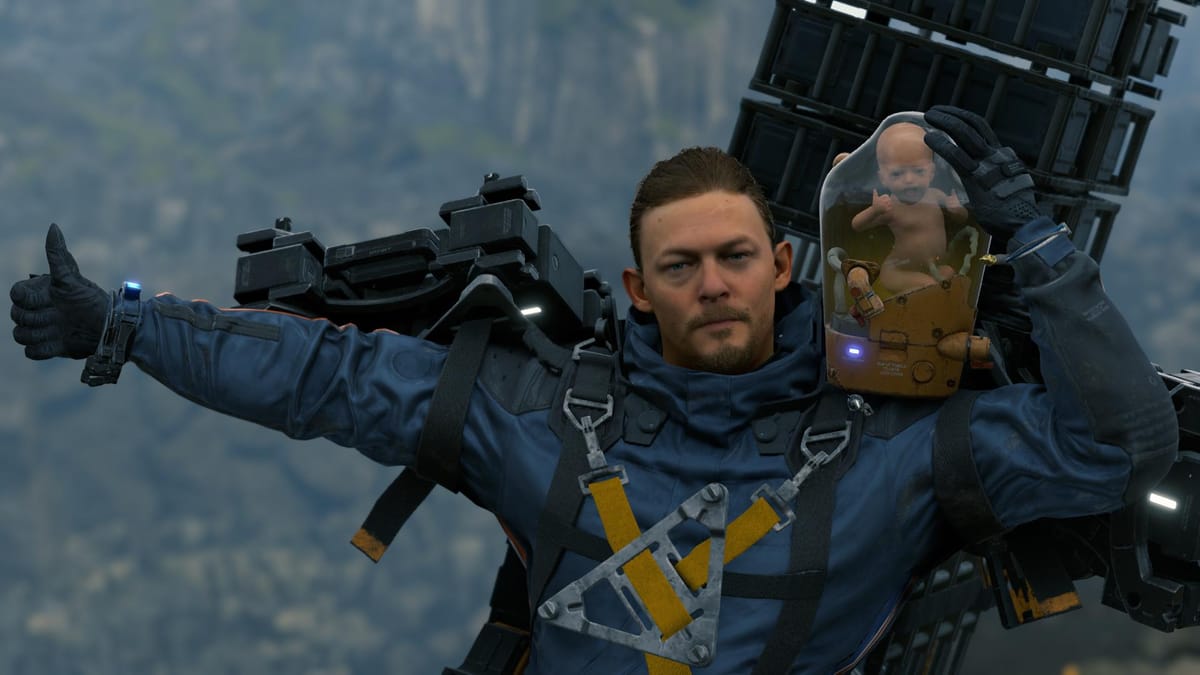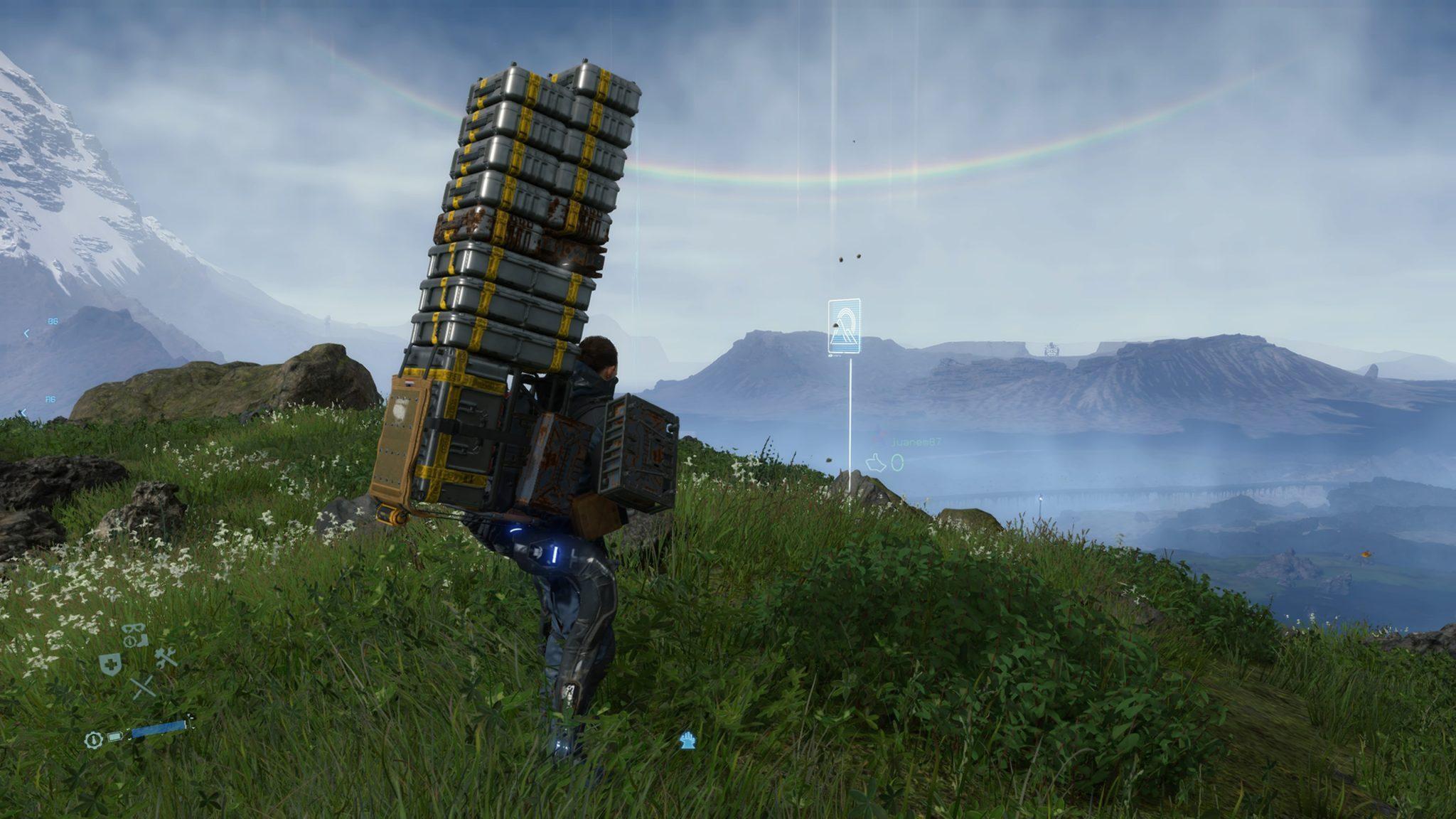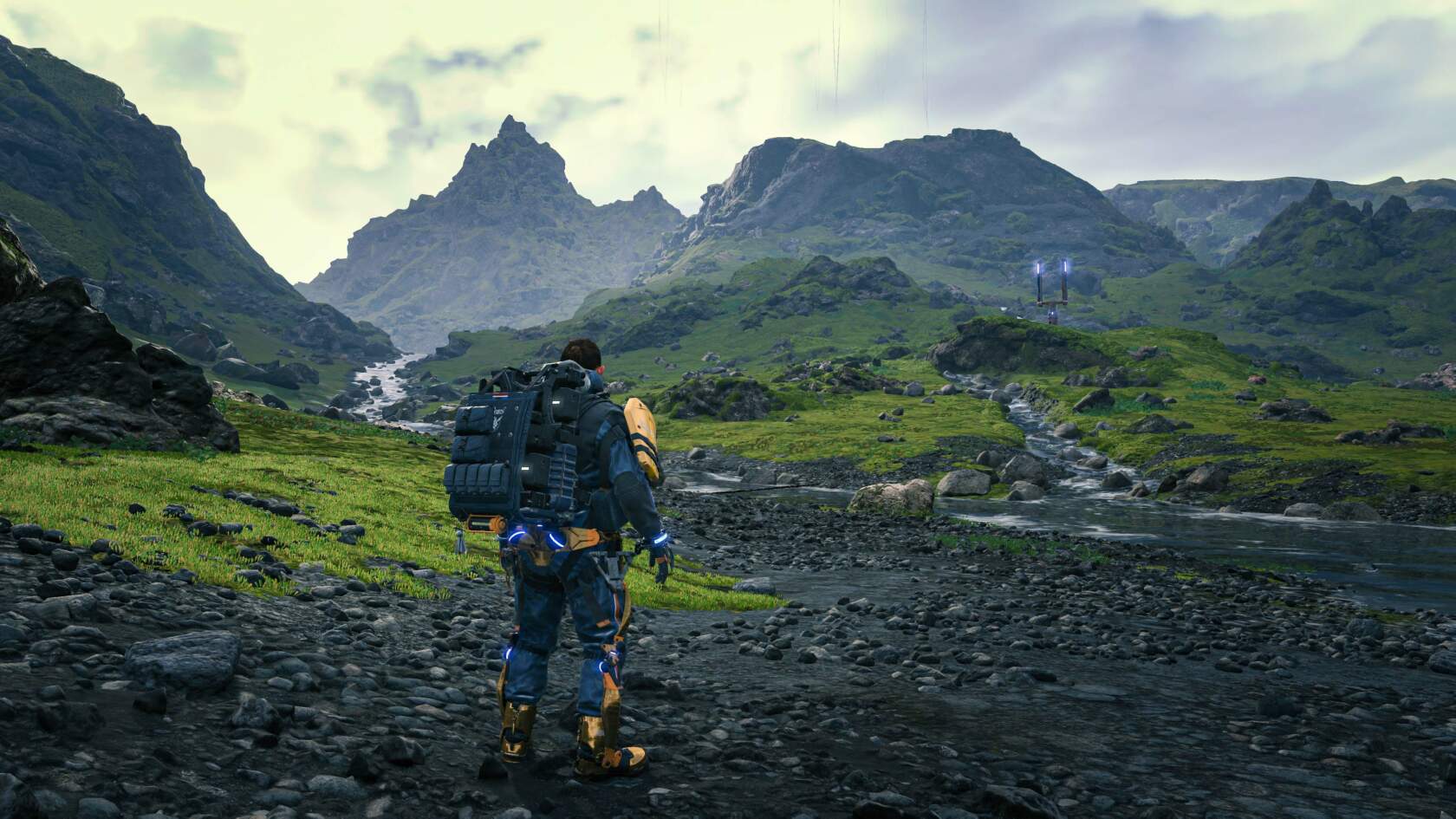People Are Falling in Love With Death Stranding (Again)
And I just happen to be one of them

I'll admit, I was quite dismissive of Death Stranding when it was released in 2019.
Why?
Well, it's a hard question to answer, but I wasn't in the right mindset, truthfully. I had no beef with the game as such - I just had too much going on in my life. Too many distractions.
Each time I tried to play, there was a disconnect between what was going on within the world of Death Stranding, and what was going on in my own head.
Conflicted, I felt I had little time to enjoy its idiosyncrasies, and that was no way to venture into a Kojima game.
So I played it for an hour, maybe two, and eventually forgot about it as I went about my familial duties. The hiking experience offered by Death Stranding was replaced by more familiar, less cerebral experiences, like Crash Team Racing.

I don't regret this. I think it stands to reason that we can only appreciate art when we're openly receptive to it, and I wasn't open to particular experiences at that time in my life.
I wasn't alone in this respect either, with others finding they didn't have the time or perseverance to enjoy it in all its splendour. Some, however, were even more dismissive, even more critical.
The core mechanic of making deliveries was seen as a major issue, something that IGN found fundamentally problematic, awarding the game a 6.8 out of 10.
"There is a fascinating, fleshed-out world of supernatural science fiction to enjoy across its sprawling and spectacular map, so it’s a real shame that it’s all been saddled on a gameplay backbone that struggles to adequately support its weight over the full course of the journey," they said.
This wasn't an isolated review either, with others sharing that same perspective. They claimed much of what the game had to offer was boring, repetitive and unconventional.

Would they rather it have been like many open-world games that came before it, where much of the game design relies on experiences lifted from, say, Horizon Zero Dawn or a typical templated experience like Far Cry?
Who knows.
But now, in 2024, my opinion has shifted on Death Stranding. Without sounding too dramatic, it is simply one of the most enjoyable experiences I've had in gaming in recent memory.
So what changed? Me.
I'm in a place now where I can try something I initially rejected, which raises an even larger question for me.
As an unconventional and genre-defying piece, what criteria or perspectives should we use to assess and appreciate the artistic merits and innovative aspects of Death Stranding, which seems to reimagine what a game can offer, stemming from Kojima's distinctive creative approach?
Can we not appreciate it in isolation, rather than comparing it to whatever is most similar in terms of game design?
It's hard to say, and it's not something I'm necessarily going to try to answer, but one thing is clear, people are falling in love with Death Stranding again, and so am I.
Walk With Me
Browsing my usual online hangouts, you'd be forgiven for thinking the post-apocalyptic delivery simulator has seen a steady resurgence in popularity over the last few months.
You only have to visit r/DeathStranding on Reddit to see people gushing over a game they didn't fully grasp initially.
"I absolutely love the game. Played through it 3 times, keep finding more and more stuff. I sometimes get lost wandering around looking for new things or just enjoying the environment." - Substantial-Fix-8541
I really love the moments where there are no enemies around and you can just walk around and just take in the scenery while listening to something or low roar is playing, it’s a special lonely feeling that few games achieve. - AdBudget5468
"Who knew simply walking down into a valley would mean so much, and impact so many. THIS is the moment where most players realize how truly unique & special this game really is." - KabbalahSherry
And so on.
Thanks to content updates, high-profile streamers playing the game, and perhaps a better understanding of its unique vision, gamers are falling back in love with Death Stranding.
It's not the first time or last time that art will fall victim to a set of circumstances in which it's largely misunderstood and therefore ignored.
Much loved movies The Rocky Horror Picture Show (1975) and The Big Lebowski (1998), which were not well-received by critics when first released, slowly gained devoted cult fan bases over time.
The White Album by The Beatles was dismissed by some critics who considered "its satirical songs unimportant and apolitical amid the turbulent political", according to Wikipedia. It later attracted acclaim, as well as becoming a fan favourite.

It's too early to say, but we're potentially witnessing the same fate with Death Stranding as curious folks realign their expectations and go hiking rather than another round or two of their favourite online shooter.
What was once seen by some as a boring slog is now being celebrated as a refreshingly original take on gaming that delivers a healthy mix of thoughtful storytelling, tense environmental challenges, and darkly comedic moments.

The seemingly mundane act of carefully planning routes and supply loads now feels like a compelling gameplay hook when everyone does it together. In an era of online games that relentlessly push microtransactions and perpetual battle passes, Death Stranding's fully realised single-player vision hit a nerve.
Keep On Keeping On
In an ironic turn of events, what made this game so difficult to appreciate initially are the reasons I appreciate it all the more now. For many, the plodding pace and seemingly mundane delivery missions were instant turn-offs.
Where first I misunderstood, I've adjusted my expectations to allow the game to take me along delivery routes with beautiful vistas and even more beautiful weather effects as the rain (known as timefall) rolls in from the distance.
It is a sight to behold, and nothing in the remainder of the game captures the beauty of the Decima Engine like the lush green and often ragged hills of the transformed east coast of America.

I have a deeper understanding of the game and have subsequently discovered a rich, haunting world that meditates on loneliness, trauma, and humanity's fundamental need for connection.
The consensus is that sure, it can take a while to get into it, something even more glowing reviews mention. But now, whether people are brand new to the game or coming back to it, they seem to agree that the gradual, unhurried pace is part of what makes it such a great experience.
For me, it's almost a hypnotic experience, as I trundle my way through unforgiving topography listening to Low Roar and cursing myself for not bringing that extra ladder. Most unexpected of all is just how addictive I find it, gunning for one more delivery before I head off to bed.
As a father with limited time, I find contentment in doing a few runs before my responsibilities get the better of me.

I'd argue the slow-burn style is Death Stranding's strength, not its weakness.
I find myself forging connections with the land and world within. By taking my time traversing harsh environments, I'm intimately familiar with every nook and cranny, like a familiar stroll in the real world, albeit, without the oil-soaked death eaters known as BTs.
It's this glacial pace that allows for an appreciation of the stunning vistas and intricate details to fully sink in. Rather than just rushing through, the slow pace encourages players to become invested in the game's universe and narrative.
This patient, purposeful approach ultimately leads to a more immersive and emotionally resonant experience that stays with players long after completing the game.
Storyteller Hideo Kojima layered the gameplay with his trademark blending of pseudoscience, existential philosophy, and wild supernatural elements. It's heady stuff, and if you're not a fan of Kojima's style, you're unlikely to enjoy the hammy storytelling on offer here.
By steering into its strengths as an idiosyncratic hiking epic and supporting it robustly post-launch, Kojima Productions cultivated an environment where its eccentric charms could be appreciated.
Death Stranding may never be a mainstream blockbuster, but that was never really the point. In finding its dedicated community of porters and giving them a reason to keep making deliveries, this unique game has ensured its status as a bizarre but beloved cult classic.
What I find most striking of all, however, is that for every high-octane, fast-paced game out there, how many chances do we get to play something that moves at a glacially slow speed?
Not often, I'd suggest. As such, we should embrace the chance when we get it, even if years after an initial release. If anything, the renewed interest proves that when it comes to thinking outside the box, Hideo Kojima truly delivered.




Comments ()